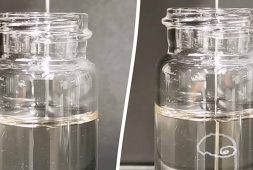
A recent study suggests that hormone therapy is a safe and effective treatment for women experiencing vasomotor menopausal symptoms. However, for individuals without such symptoms, the risks associated with hormone therapy outweigh its benefits. Additionally, the study proposes that initiating hormone therapy near the onset of menopause may potentially reduce the risk of developing a specific type of dementia in women.
Furthermore, the study indicates that women who undergo menopause at younger ages and delay hormone replacement therapy for symptom management may face an elevated risk of developing Alzheimer’s disease.
“Hormone therapy is the most reliable way to ameliorate severe menopause symptoms, but over the last few decades, there has been a lack of clarity on how hormone therapy affects the brain,” said Rachel Buckley, PhD. She is the senior author of the paper and an assistant professor of neurology at Harvard Medical School and Massachusetts General Hospital in Boston. She recently provided a statement about their findings.
Women at a Greater Risk of Alzheimer’s
In order to examine the relationship more closely, a group of researchers analyzed data from 99 men and 193 post-menopausal women who had no previous cognitive impairment. All participants underwent positron emission tomography (PET) scans to evaluate the levels of tau and beta-amyloid proteins in their brains, which are associated with the development of Alzheimer’s disease.
The female participants provided information regarding their age at menopause. The researchers classified individuals who experienced menopause before the age of 40 as having premature menopause, and those who experienced it between 40 and 45 as having early menopause. The National Institutes of Health (NIH) states that the normal timing of menopause is between 45 and 55 years of age.
For the subset of 98 women who underwent hormone therapy, the researchers examined data on the timing of treatment initiation following menopause.
The researchers reported in JAMA Neurology on April 3 that women had higher levels of tau compared to men. This finding was anticipated, as previous evidence has consistently shown that women are more susceptible to developing Alzheimer’s disease than men.
Additionally, the scientists discovered that women who experienced menopause at an earlier age had elevated levels of tau and beta-amyloid proteins in their brains. This relationship persisted even after taking into account genetic risk factors for Alzheimer’s disease and known factors associated with early menopause, such as smoking and surgical removal of the ovaries.
Starting Hormone Therapy Almost Immediately After Early Onset of Menopause Could Provide Cognitive Help
However, when examining the timing of hormone therapy in women who experienced early menopause, researchers found no evidence of elevated protein levels when women started hormone therapy immediately after this transition. Among these women, the highest protein levels were observed in participants who delayed hormone therapy for at least five years.
“We found that the highest levels of tau, a protein involved in Alzheimer’s disease, were only observed in hormone therapy users who reported a long delay between age at menopause onset and their initiation of hormone therapy,” Dr. Buckley explained.
The study has a limitation in terms of its participant demographics, as the majority of participants were white. The researchers acknowledge that the results may have differed for Black, Hispanic, or individuals from other racial or ethnic backgrounds. Another drawback is that the accuracy of the timing of menopause and hormone therapy initiation relied on participants’ recollection and reporting, which introduces the possibility of inaccurate information being provided.
Nevertheless, the findings present new evidence suggesting that the association between hormone therapy and dementia, as established by the significant Women’s Health Initiative (WHI) study two decades ago, may not be consistent for every woman who uses hormones. Dr. Victor Henderson, the director of the Alzheimer’s Disease Research Center at Stanford University in California, highlights this fresh perspective offered by the study’s results.
“The effects of hormone therapy on dementia risk may depend on the age at which hormone therapy is initiated or on the timing of initiation in relation to menopause, with higher risks with initiation and use at older ages further from menopause,” Dr. Henderson said. He wasn’t involved in the new study.
According to Henderson, women should be reassured that they can reduce their risk of dementia by starting hormone therapy earlier. However, this does not mean that women who do not experience vasomotor symptoms of menopause, such as hot flashes or night sweats, should begin hormone therapy solely for the purpose of promoting brain health.
The findings “don’t suggest that women should consider hormone therapy in the absence of moderate-to-severe vasomotor symptoms in the hope of staving off dementia,” Henderson also said. “On the other hand, findings are consistent with other evidence that overall benefits of hormone therapy in the perimenopause and early post-menopause are not outweighed by overall risks in otherwise healthy women.”



